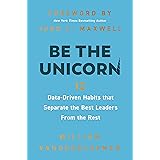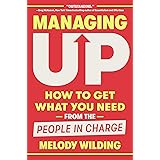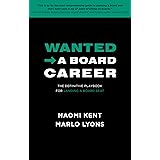The decision to change your job is often fraught with uncertainty and apprehension. Many individuals find themselves in roles that no longer serve their aspirations, yet the idea of venturing into the unknown feels incredibly daunting. However, it is important to remember that staying in an unfulfilling position also carries significant, often unseen, risks that can accrue over time.
The video above highlights that what appears to be a secure present might actually be silently eroding your future well-being. This article will explore the profound implications of career stagnation and outline a responsible, strategic pathway for those considering a professional transition. It is possible to navigate the complexities of a job change with foresight and preparedness.
The Hidden Costs of Staying in an Unfulfilling Job
A common misconception is that one’s current job offers a risk-free environment. This perspective often overlooks the subtle dangers accumulating while maintaining the status quo, and these unseen risks are frequently ignored because they have become habitual.
Understanding the Invisible Risks of Your Current Role
There are many inherent risks in any employment situation, but these are often unacknowledged due to familiarity. People tend to become blind to these drawbacks, as daily routines make them seem normal. Believing that your current situation is without risk can lead to poor long-term decision-making.
This comfortable illusion of security can prevent individuals from actively seeking better opportunities. A passive approach to career management may inadvertently lead to professional stagnation. Proactive assessment of one’s current role is essential for personal and professional growth.
The Cumulative Burden of Unaddressed Annoyances
Small, daily frustrations at work might seem insignificant on their own. However, these minor irritations can aggregate into a substantial source of misery over time. For example, encountering just one small annoying thing each day at work can add up considerably.
If a person consistently chooses to ignore these minor issues over a period, the consequences become significant. Over three years, this equates to approximately a thousand unaddressed problems or decisions; extend that to five years, and the number doubles to two thousand. This accumulation creates a metaphorical “monster” of dissatisfaction, affecting one’s overall well-being.
Beyond Happiness: The Moral Imperative of Meaningful Work
While the pursuit of happiness is often seen as a desirable goal, the video suggests that seeking meaning in one’s work carries a deeper, moral obligation. This distinction is crucial when evaluating career choices and contemplating a job change.
Distinguishing Between Fleeting Joy and Profound Meaning
Happiness is often characterized by fleeting moments of pleasure or contentment, which can be a luxury in life. Meaning, however, is a deeper, more enduring sense of purpose and fulfillment derived from one’s efforts and contributions. It is understood that pursuing meaning might necessitate sacrifices and hard work, as it is not always an easy path.
Therefore, individuals are encouraged to prioritize meaning over mere happiness when making significant career decisions. A job that provides a sense of purpose contributes more substantially to long-term satisfaction than one offering only temporary joys. Engaging in meaningful work can transform daily tasks into contributions towards a larger objective.
The Illusion of Permanent Security and Its Dangers
True security is not found in a static job position but in one’s capacity to adapt and overcome challenges. The idea of permanent external security is often an illusion that can lead to complacency. Individuals are consistently paying a price if they remain in a miserable situation.
Many believe “the devil I know is better than the one I don’t,” yet this conventional wisdom can be dangerously misleading. Time is constantly progressing, and inaction in a miserable job often leads to greater unhappiness and increased age without improved circumstances. Remaining stagnant in an unfulfilling role limits one’s personal and professional development.
Strategically Approaching a Career Change
A responsible approach to changing your job involves careful planning and preparation, particularly when significant life responsibilities are present. Quitting impulsively without a strategy is rarely a successful method.
Preparing for Your Next Opportunity: A Responsible Path
When a job feels soul-crushing, a strategic outlook is essential for a successful career transition. This means recognizing the problem and methodically planning the necessary steps to find an alternative. Simply walking away without a plan is not a viable option for most individuals with financial or family obligations.
The journey to a new, more fulfilling role often requires considerable effort over an extended period. It is understood that securing a new position might take a couple of years of dedicated work. Many people find it easier to secure a new job while still employed, maintaining financial stability during the search.
Developing Essential Skills for a Successful Transition
A strategic career change often necessitates personal and professional development. This might involve updating one’s education or acquiring new, relevant skills to enhance marketability. Ensuring your resume or curriculum vitae is current and impactful is also a critical step.
Overcoming the fear of interviews and sharpening social skills are also valuable components of this preparation. These areas of self-improvement directly contribute to a more confident and effective job search. Investing in these skills significantly increases the likelihood of securing a more meaningful position.
Cultivating Your Professional Escape Route
In today’s dynamic job market, maintaining an active “escape route” or contingency plan is crucial for professional autonomy. This readiness provides crucial leverage in negotiations and protects against undesirable work situations.
The Power of “No”: Gaining Bargaining Leverage
Possessing an escape route means having viable alternatives available if one’s current job situation becomes untenable. This preparedness empowers individuals to decline unacceptable demands or conditions within their current role. The ability to say “no” is fundamental to effective bargaining in the workplace.
Without the option to leave, an employee’s negotiating power is severely diminished. This lack of leverage can effectively trap individuals in positions where they feel undervalued or exploited. The freedom to consider other opportunities fundamentally alters the power dynamic with an employer.
Maintaining Readiness in an Uncertain Job Market
The modern job market is characterized by relative uncertainty, making continuous readiness for a job change an intelligent strategy. Regularly updating skills, networking, and keeping an eye on industry trends are proactive measures.
Being prepared to change your job ensures that one is never completely beholden to a single employer. This state of readiness is not about disloyalty but about ensuring personal and professional freedom. When your internal being objects to something being forced upon you, it is vital to acknowledge that inner voice, as it may be guiding you towards a necessary change.
Untangling the Job Change Dilemma: Your Questions Answered
Are there risks to staying in a job I don’t like?
Yes, staying in an unfulfilling job has hidden risks that can build up over time, silently affecting your well-being and preventing professional growth.
Should I prioritize happiness or meaning in my career?
The article suggests prioritizing meaning, as it offers a deeper, more lasting sense of purpose and fulfillment compared to fleeting moments of happiness.
What is a ‘strategic career change’?
A strategic career change involves careful planning and preparation, such as developing new skills and updating your resume, rather than quitting your current job impulsively.
Why is it helpful to have an ‘escape route’ in my career?
Having an escape route means you have other job options, which gives you more bargaining power in your current role and helps ensure your professional freedom.









